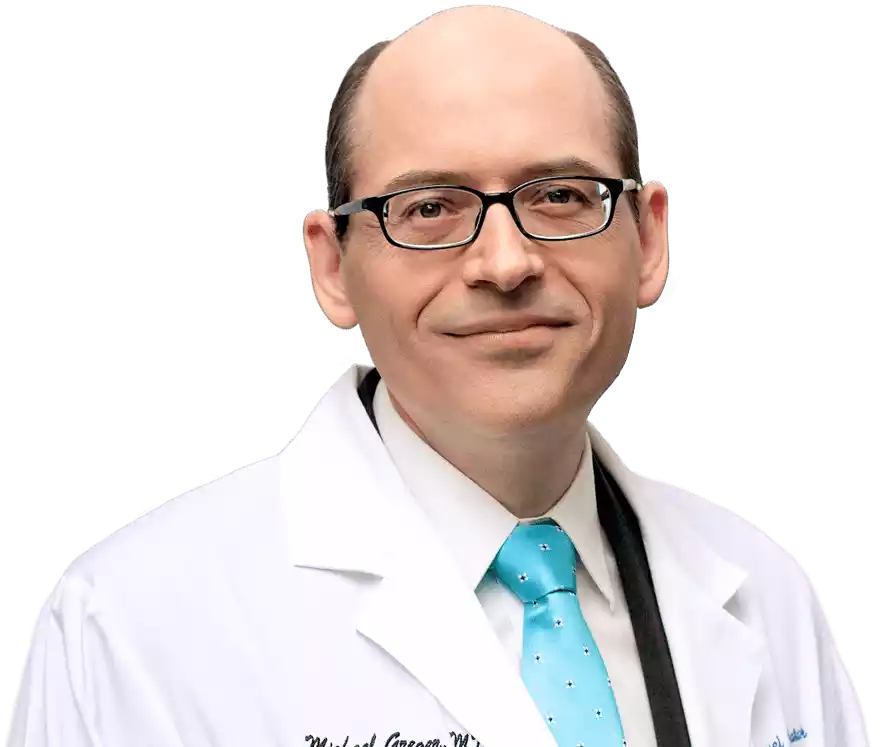Q&A with Dr. Michael Greger, New York Times Bestselling Author of ‘How Not to Die’

Dr. Michael Greger spoke to Athletech News about why diet is a matter of life and death, and his best recommendations for making healthier food and beverage choices
Dr. Michael Greger is a physician, internationally recognized speaker on public health issues, and New York Times bestselling author of “How Not to Die,” a book that examines the leading causes of death in America — heart disease, various cancers, diabetes, Parkinson’s, high blood pressure, and more. In the book, Dr. Greger explains how nutritional and lifestyle interventions can sometimes trump other pharmaceutical and surgical approaches. His website, NutritionFacts.org, also provides the public with what the latest science is saying about the best foods to eat.
Athletech News (ATN) spoke with Dr. Greger about nutrition science’s evolution, simple ways to improve one’s diet, and why a walking treadmill might be the best update to your home office.
ATN: How has nutrition science progressed in recent years? Is it gaining more recognition in medical schools and curriculums? Is it receiving more attention in healthcare?
Dr. Michael Greger: Nutrition science has not changed fundamentally for decades. But it’s whether or not people are paying any attention. There’s a severe nutrition deficiency in education, in medical training. Most doctors are not taught about the impact nutrition has on health and disease, so they graduate without this essential tool in their medical toolbox. There are institutional barriers: time constraints, a lack of reimbursement. General doctors aren’t paid to counsel patients on how to take better care of themselves. Drug companies play a role in medical education and practice. You can ask a doctor: when was the last time you were taken out to dinner by big broccoli? It’s probably been a while.
It’s basically like smoking in the 1950s. By the 50s, we already had decades of science linking lung cancer with smoking, but it was ignored. Why? Because smoking was normal. Most doctors surveyed smoked, right? The average per capita cigarette consumption was 4,000 cigarettes a year in the United States. The American Medical Association was reassuring everyone that smoking in moderation was totally fine. So, there was this disconnect between the science and public policy. It took more than 25 years and 7,000 studies for the Surgeon General, finally, in the 1960s, to come out with his first report against smoking.
But until the system changes, we need to take personal responsibility for our own health or family’s health. We can’t wait until society catches up to the science again because it’s really a matter of life and death. There is an epidemic of dietary disease. It is normal, but normal is killing us.
ATN: Your books are comprehensive and promote nutrition in an easily accessible way for many people. Did you make a conscious decision to do so? Who is your target audience, and what was your thought process behind this?
Dr. Michael Greger: A patient once asked me if they should take a multivitamin, and I had no idea. Unfortunately, there is a multivitamin lobby. There’s just so much money involved in every decision we make in the field of medicine. It’s just so frustrating to not be able to answer the simplest questions, right? That’s what really pushed me to bridge the gap. There are all these amazing studies all the time, and the information just isn’t coming across.
It’s a balancing act between wanting to include every possible piece of information and letting a person decide for themselves. I just want to show my work, and say “if I miss something, let me know, and let’s all figure this out together.”
ATN: What else do you think it would take to counter the influence that these large corporations have over the discourse surrounding food and health? I’m thinking of the soft drink industry’s influence on sugar consumption, the dairy industry’s campaign to get us to drink more milk, etc.
Dr. Michael Greger: We have a secret weapon. And the secret weapon is that the weight of evidence is on our side. I mean, the convoluted hoops that the researchers at these cola companies have to jump through to make sugar not look so bad, right? Or imagine you’re given the assignment to make Twinkies look good. There really are studies that make Twinkies look good! You use the old farmer trick of comparing them to Ding Dongs. We have to take advantage of the balance of evidence in our favor. Take salt. Is it that bad? They spent millions of dollars trying to prove that salt isn’t that bad: Here’s the mountain of evidence that your science is crap and you’ve just wasted a lot of money and confused a lot of people. But in the end, hopefully, the truth will win out.
ATN: What do you think is one easy thing that people can do to improve their diet?
Dr. Michael Greger: Just cutting down on salt could literally add years to your life. Boom. Just not adding salt, I mean, that’s crazy. That’s amazing. Adding legumes to your diet. Chickpeas, lentils, dark leafy vegetables, berries, nuts, cutting down on processed meats. It’s not all black or white. Any movement we can make towards healthier eating really adds up.
As a physician, all vegan tells me is what you don’t eat. For all I know you’re living off of your French fries and beer like a lot of collegiate vegans. You can eat a horribly unhealthy vegan diet, right? That’s why whole-food plant says: oh, you actually eat your vegetables. Now we’re talking. If by vegan, you mean, “oh, I eat lots of foods as grown out of the ground,” okay, that’s great. Decades ago, there weren’t vegan donuts and vegan ice cream. You actually had to shop in the produce aisle, but now, you can have any flavor of junk food you want, right? You want keto junk food? We’ll give you keto junk food. We’ll give you gluten free junk food. As long as they’re making money, right? They can’t make money off real food, because it goes bad, it rots on the shelves. You need a snack cake that lasts for weeks. There’s just no markup on produce. The only profit is in our health, if we actually take advantage of the science.
ATN: How realistic do you think it is for people to reduce the amount of meat that they eat, and what do you see as viable alternatives? And how do you see the cultural attachment to meat in the U.S. as an obstacle to the shift towards plant-based?
Dr. Michael Greger: It’s all about culture. There are social pressures, right? So much of our culture surrounds sitting down at the dinner table with our family. It’s just like with smoking, right? Everyone was smoking in the movies, on airplanes. It was so much a part of our culture to whip out a lighter, flick it, and light someone’s cigarette on a date. It was considered uncouth to not have a lighter on you. It was unthinkable. Then, all the sudden, smoking was gross and you were outcast and you had to be out on the street corner in the rain.
Just a few months ago, all public hospitals in New York City defaulted to plant-based meals. You can replicate that everywhere. Are there all sorts of social and cultural pressures that get people to still eat meat? Well, sure. It was masculine to smoke cigarettes, and it’s masculine to eat a big steak. You know, neither of them does you any favors, and it’s really just these marketing pushes to continue to get you to think that way.
ATN: What do you think is the best food to eat?
Dr. Michael Greger: I got the daily dozen! The healthiest of healthy foods I encourage people to fit into their daily routine. I profile them in the second half of “How Not to Die.” There’s a free app, Dr. Greger’s Daily Dozen. You see how many you can click off and you can get through every day. We all know that fruits and vegetables are healthy, but did you know that the healthiest fruit is berries? We encourage people to eat darky leafy vegetables, a tablespoon of ground flax seeds every day, a teaspoon of turmeric. We talk about the best beverages and how much exercise to get every day. We just try to encourage people to think about these things to fit them into a daily routine.
ATN: If you could snap your fingers and change one thing about health policy or the way people eat, what would it be?
Dr. Michael Greger: An easy thing that might actually be doable is getting rid of public subsidies for unhealthy foods. Why is our taxpayer money being spent to make cheaper high fructose corn syrup, or cheaper sugar, or cheaper feed crops? These foods don’t reflect their actual cost. They just externalize these costs on to society.
ATN: I see you’re using a walking treadmill. Can you tell me a bit more about that?
Dr. Michael Greger: Oh, I love it. I love it. I can’t stand sitting down anymore. So, this came out of research suggesting that prolonged sitting for six hours and more a day has adverse health effects above and beyond just the secondary lifestyle. So even if you work out in the gym every day after your desk job, you actually have a significantly increased mortality compared to people who don’t have that prolonged sitting behavior. And we think it’s because of endothelial dysfunction, from blood pooling in your lower extremities. And there are under the desk things you can do. You can bounce your knee up and down, do little calf pump exercises. Another option is a standing desk. That’s why I walk. It’s not really exercise per se, it’s just not being sedentary. Sitting is definitively not the new smoking, it’s 10 times less deadly than smoking cigarettes, but still, it’s better not to do it.



